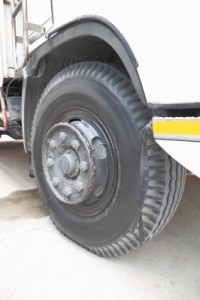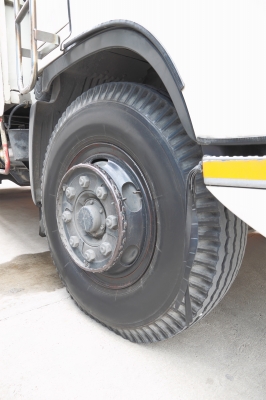 Operators of trucks barred from filing for a confirmation or renewal of registration on account of their vehicles being too old are being given a chance to re-apply.
Operators of trucks barred from filing for a confirmation or renewal of registration on account of their vehicles being too old are being given a chance to re-apply.
After a meeting with truckers on May 22, Land Transportation Franchising and Regulatory Board (LTFRB) chairman Atty. Winston Ginez told PortCalls operators disallowed by LTFRB to confirm or renew registration of their trucks under the non-confirmation year (NCY) policy in 2014 may now submit their applications and prove the units’ roadworthiness.
Ginez explained that truck registration is confirmed or renewed annually, and a truck given until 2014 to renew may now proceed with filing their application.
The new policy is embodied in Board Resolution (BR) No. 06-2015 signed by the LTFRB Board on May 20. Ginez said the confirmation is valid for one year and must be re-applied for the next year.
LTFRB said they see BR 06-2015 as a compromise with truckers while waiting for a final decision from the Department of Transportation and Communications (DOTC) on the proposed phase-out of trucks more than 15 years of age.
Edgardo Olego, president of the Confederation of Truckers Association of the Philippines (CTAP), called the resolution a good compromise. CTAP director Alberto Suansing agreed, adding BR 06-2015 is an open-ended directive.
Based on LTFRB records, Ginez said a total of 1,891 trucks had been affected by both the NCY implemented June 2014 and Joint Administrative Order No. 2014-01, which increased the fines and penalties for colorum (unfranchised) public utility vehicles.
Under the NCY policy, trucks aged 26 and above are allowed to be confirmed for only one year. Trucks 21 to 25 years old can be confirmed for two years, those aged 10 to 20 for three years, units aged 11 to 15 for four years, and trucks aged 10 and below for five years.
Trucking organizations said most trucks plying roads nationwide are more than 15 years old since most truckers cannot afford brand-new units. They said roadworthiness, not the age of truck, should be the basis for grant of a franchise. Truckers, in position papers sent to LTFRB, requested for a moratorium on the proposed 15-year phaseout policy and asked for government assistance to help them re-fleet. LTFRB in turn asked truckers for a criteria for roadworthiness.
Under BR No. 06-2015, LTFRB said it recognizes the vital role trucks-for-hire (TH) play in the economic stability of the country, adding that the service is the “primary mode of land transportation of goods and merchandise within the archipelago.”
It added, “A delay or cessation of operation of TH services entails untold inconvenience to the public.”
The resolution said “the Board is fully cognizant of the detrimental effects in the nation’s economy of any disruption in the regular operation of TH services.”
LTFRB noted it received numerous motions for reconsideration on the issue of NCY.
Criteria for confirmation
Trucks with no year model indicated on the certificate of registration issued by the Land Transportation Office (LTO) will only be allowed to apply for confirmation if they submit a certificate of year model issued by LTO consistent with provisions of JAO No. 2014-002. The JAO, issued October 2014, provides the guidelines for determining the year model of vehicles.
The regional offices of LTFRB’s Information Systems Management Division and Records Section were directed to update their database indicating the year model of authorized units.
The Legal Division and the regional offices were instructed to only accept a certificate of registration that indicates the year model, as well as to incorporate the NCY provision into their recommended decisions until the DOTC has fixed the mandatory truck-age limit for TH services.
The executive director in the central office, upon recommendation of the Legal Division, is authorized to act on any motion relative to BR 06-2015. The regional directors are likewise authorized to act on motions filed with their respective offices.
During the meeting, LTFRB said documents justifying the motion to allow confirmation must be presented. These may include safety records, proof of maintenance and rehabilitation, photos of the vehicle, and even bank records showing payments still being made on the truck.
Asked how long LTFRB can process the motions, the agency said this can take up to three days, assuming documents submitted are complete.
DOTC has instructed LTFRB to form a common position with the Department of Trade and Industry on the proposed 15-year phaseout policy after the LTFRB submitted a report collating all recommendations from different organizations.
Ginez said LTFRB is still studying the proposal, and that no deadline was set for a decision. He added he is open to the suggestion of truckers to form a technical working group to study the policy. – Roumina Pablo
Image courtesy of Keerati at FreeDigitalPhotos.net





